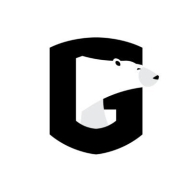

SonarQube Server and GuardRails compete in the code quality and security management domain. GuardRails appears to have the upper hand due to its advanced features and perceived value for investment.
Features: SonarQube Server provides static code analysis, support for multiple programming languages, and integration with CI/CD pipelines. GuardRails offers real-time code scanning, comprehensive support for modern workflows, and automated remediation guidance.
Ease of Deployment and Customer Service: SonarQube Server is flexible for large-scale deployments with seamless plugin integration and known for responsive customer support and ample documentation. GuardRails has a cloud-based implementation for quick deployment, aligning with agile environments, and offers proactive support with detailed onboarding.
Pricing and ROI: SonarQube Server offers multiple pricing tiers, providing cost-effective feature packages and strong ROI, though setup costs can be substantial. GuardRails has a predictable pricing model with lower initial costs, offering high ROI through real-time scanning and security improvements.

GuardRails offers an efficient way to enhance application security within development workflows by integrating seamlessly with tools developers already use, ensuring vulnerabilities are caught early in the development cycle.
GuardRails acts as an automated guard against security flaws within coding projects. By embedding itself into development environments, it identifies potential risks without disrupting workflow. Its flexibility allows integration with multiple platforms, providing comprehensive coverage. The agile configuration addresses specific security needs, fitting seamlessly into the fast-paced needs of modern software development teams.
What features make GuardRails valuable?GuardRails implementation varies across industries by focusing on domain-specific security challenges. In finance, it helps safeguard sensitive customer data through early vulnerability detection. In healthcare, GuardRails supports compliance with strict regulatory standards, protecting patient information while maintaining workflow efficiency.
SonarQube Server enhances code quality and security via static code analysis. It detects vulnerabilities, improves standards, and reduces technical debt, integrating into CI/CD pipelines.
SonarQube Server is a comprehensive tool for enhancing code quality and security. It offers static code analysis to identify vulnerabilities, improve coding standards, and reduce technical debt. By integrating into CI/CD pipelines, it provides automated checks for adherence to best practices. Organizations use it for code inspection, security testing, and compliance, ensuring development environments with better maintainability and fewer issues.
What are the key features of SonarQube Server?Many industries implement SonarQube Server to uphold coding standards, maintain security protocols, and streamline their software development lifecycle. In sectors like finance and healthcare, adhering to regulations and ensuring reliable software is critical, making SonarQube Server invaluable. It is often integrated into CI/CD pipelines, ensuring that code changes meet set standards before deployment. This approach enhances productivity and maintains compliance with industry-specific requirements.
We monitor all Static Application Security Testing (SAST) reviews to prevent fraudulent reviews and keep review quality high. We do not post reviews by company employees or direct competitors. We validate each review for authenticity via cross-reference with LinkedIn, and personal follow-up with the reviewer when necessary.